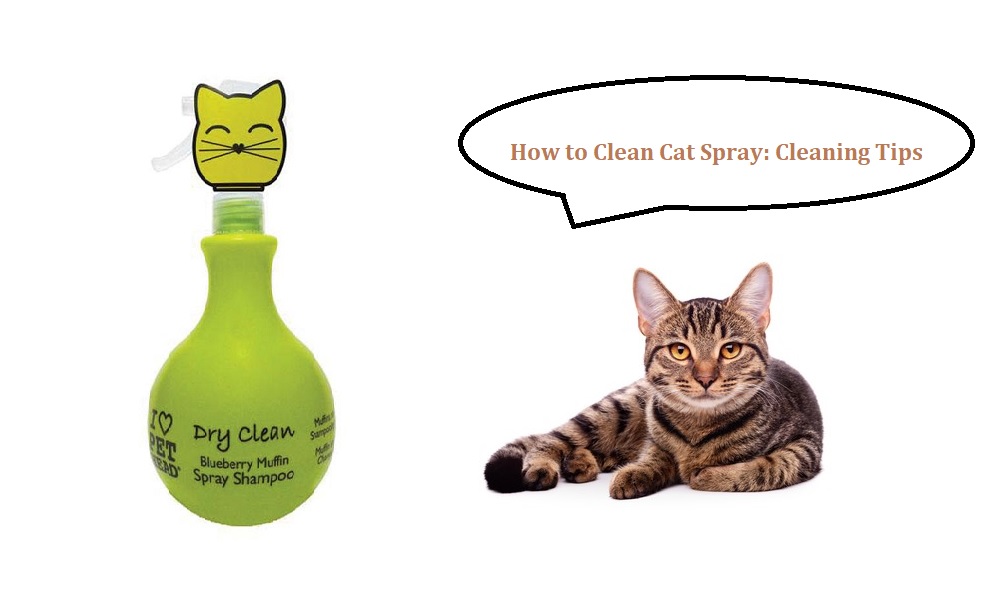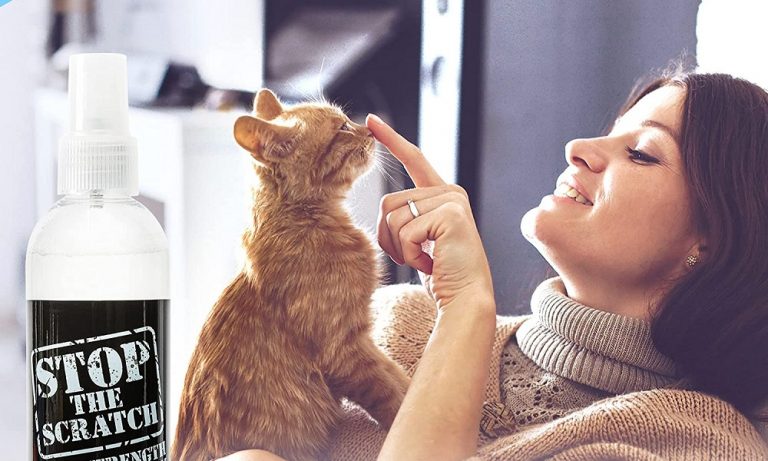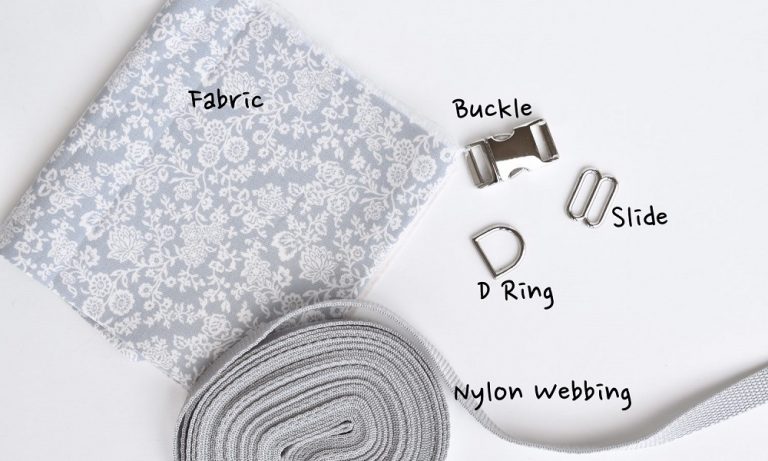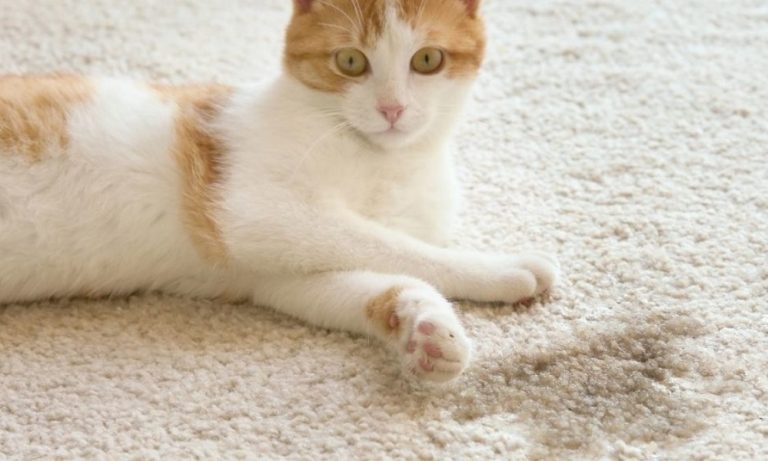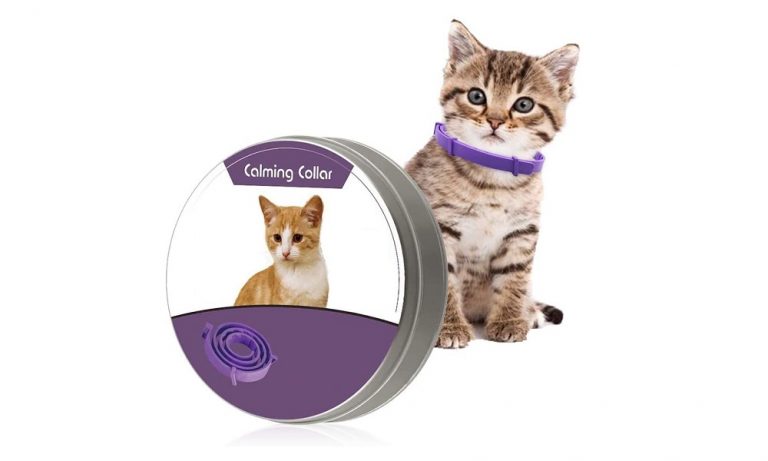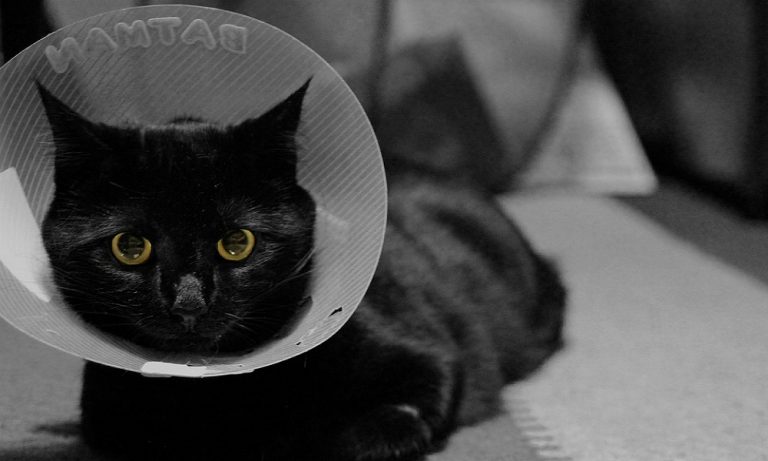How to Clean Cat Spray: Cleaning Tips
When you decide to share your apartment with your cats, they can pee outside the box or spray around. When your cat sprays, it doesn’t mean your cat is mad at you.
It is just a sign that your cat needs attention to feel more comfortable. Cats usually spray as they attain a certain age of maturity, some spray due to anxiety, change of routine, or neighborhood.
Most cat spray to mark their territories which usually result to the ruined surfaces, carpets and wall. Cat urine consists of 95% water.
Other 5% is chemical contents like uric acid, salts, minerals, ammonia, and more. This odor can linger for a while after the liquid has been absorbed.
Finding out the reason why your cat sprays is the first step to solving the problem. If the problem continues, you can visit your vet doctor.
Cat spray is not difficult to eliminate if you follow the steps and use the right formula. Below are various ways to clean the urine and eliminate odor by using some common substances as a remedy.
Where Do Cat Spray?
No matter how neat and well trained your cats are, there are times they would want to mark their territory in your home!
Cats can spray against the walls, on the carpet, furniture, and other places around the house to achieve this kitty goal.
They can spray around windows and doors when they notice an unfamiliar cat is lurking around their homes. Nevertheless, cat spray can be so unbearable in the house.
They spray in the yard and around, and if your cats love to sneak outside the yard, they can spray around the immediate environment to set boundaries.
Read more: best cat deterrent sprays
How to Clean Cat Spray?
No one can stay comfortable around where a cat has sprayed, but at the same time, you can’t forever prevent your cat from spraying. Here are a few steps to get rid of cat spray in the home.
Finding the sprayed spot is the first thing to do. Without knowing the exact affected location, it is difficult for effective cleaning to take place.
You can use a black light to highlight the exact location. If you catch your cat in the act of spraying, act immediately by cleaning straight away before it is absorbed into household properties.
Method – 1
Clean the area by applying soapy water, use a clean towel to wipe out the surface, and dry it.
- If the urine has dried, pour a cup of ordinary water on the spot.
- Uses a towel to clean the area. Do not try to rub the stain into the carpet or other materials while cleaning; this will make the urine stain and smell settle in.
If the first method does not work effectively, proceed toward using other stain and odor eliminators.
Method – 2
Baking Soda
Depend on how wide the sprayed area is; evenly spread a sufficient amount of baking soda over the sprayed spot. Avoid applying excessive amounts as it can be challenging to clean. Baking soda is non-toxic and cannot harm your cat.
- Let the baking soda remain on the sport for some hours or maybe over the night.
- Use a vacuum cleaner to vacuum it up.
Method – 3
Use an Enzyme-Neutralizing Cleaner
This process helps break down the molecules in cat spray and helps get rid of the lingering smell. Apply this formula when you have succeeded in diluting cat spray.
- Spray the enzymatic product into the affected area and soak for some time before using a towel to blot it out.
- However, if the affected area is on a rug or carpet, use a vacuum after applying the enzymatic spray to remove the stain.
Method – 4
Pet owners can use a natural home remedy to eliminate cat spray instead of using other chemical items.
- Pour 100ml of vinegar into a container and add 200ml of warm water into it.
- Pour the mixture into a clean spray bottle, shake with rigor and apply on the soiled surfaces.
- Use a clean towel to blot dry the urine.
Read More Post: best flea sprays for cats
How to Refresh Your Home After Cleaning Cat Spray
Also, after applying either of the above options, it is necessary to keep your home refreshed against cat spray odor.
Option 1
Use air freshener that has baking soda, sodium bicarbonate act as an odor absorber.
Option 2
Make use of homemade air fresheners such as citrus blends, lavender, grounded gloves, and grounded cinnamon or dried herbs. Sprinkle the homemade formula on the affected areas; let it sit for a few minutes, and vacuum up.
Lately, open the wind for free cross ventilation and inflow of air. Monitor your cat to see if he has any health issues or allergies to any spray remedy you apply.
Read More Post: best cat pheromone sprays
Important Tips
Once you have cleaned up the spots your cat sprayed on, you can try other methods to ensure your cat does not see the need to spray on the inside.
1. Help your cat feel secure: Even when you can find reasons for your cat spraying, creating a secure environment for your cat is a way to reassure them and reduce spraying habits. This method will limit pressure and anxiety while reducing their urge to spray inside.
2. Never punish your cat for spraying: As pet owners, understand that cats spray inside for reasons. Never rub his nose in the urine or yell at him as punishment. This step may trigger more fear and escalate worse behaviors. Also, this can break the bond between you and your kitty.
3. Change your cat’s orientation: After cleaning up the affected areas, do fun activities with your cat to distract him from the target areas. Placing his toys around, giving him his favorite treat, or petting will take his mind off the sprayed spot.
Conclusion
Cat spraying can happen accidentally with any cat. It is behavior that cats are likely to involve in when they are new to an environment.
Cats love to mark their territory to feel secured and less threatened by other cats. When you identify the reasons behind the spraying habit, you will gradually reduce the behavior until you can stop it completely.
If you notice your cat loves to spray on the same spot, using some items as barriers stop him from accessing that area.
Ensure you clean the place over again to eliminate the lingering smell. If the spraying becomes more chronic and persistent, visit your veterinarian to check if your cat has medical issues.
